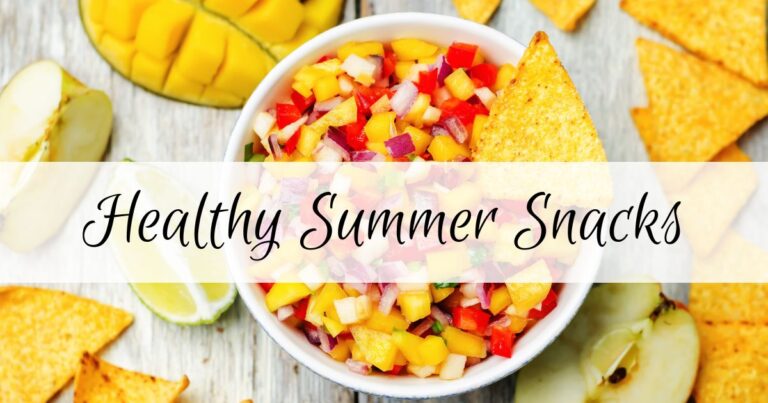Busting Myths- 20 Nutrition Myths Debunked – Eat Right!
There is so much information on the internet these days, and of course, not all of it is right. Here are twenty nutrition myths that have been debunked by our very own Michelle, our Registered Nutritionist Dietitian.
| 1. | Kale is the healthiest vegetable ever in the history of man-and woman-kind. Not True! In fact any list of the top ten healthy greens will show that kale doesn’t even make the list. Sure, it has a lot of lutein, which helps your eyesight, but you need more than lutein, you also need zeaxanthin, and that combo can best be found in egg yolks, kiwi fruit, spinach, orange juice, zucchini, and grapes. If you like kale, continue eating it, it’s good for you as are all leafy greens. But if you’re looking for the most nutritional value out of a leafy green, good old spinach is your best bet. Your mom was right again, don’t you hate that? Chinese cabbage, chard and watercress are even better. But who knows what to do with watercress? | 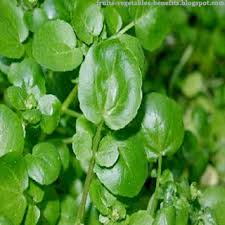 |
| 2. |  |
Eating late at night will make you fat. Nope, not true. What science has determined is that the time of day has nothing to do with how your body burns calories. However, if you tend to eat a slice of cheesecake before bed, that in itself will make you gain weight, eaten morning, noon or night. If you missed supper and want to eat it late, and if it’s part of your healthy diet, not to worry. The scientists say that is a-ok. |
| 3. | Eating eggs raises your cholesterol. Boy, did the egg farmers hate this one! A study shows that cholesterol in food is a minor factor contributing to high blood cholesterol for most people, and studies have not confirmed a correlation between eggs and increased heart-disease risk. The Mayo Clinic says, “Most healthy people can eat up to seven eggs a week with no increase in their risk of heart disease. Some studies have shown that this level of egg consumption may actually prevent some types of strokes. But the story is different for people who have diabetes.” |  |
| 4. | 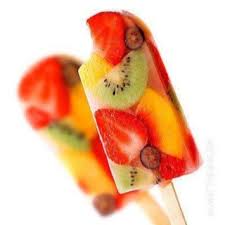 |
Fresh Fruit and Vegetables are more nutritious than frozen. If you are lucky and talented enough to have a great garden from which you can get your food and cook it right away, then this may be true. But most of us pick up our fruit and veggies in the supermarket. Those items, while fresh and good-tasting, may be several days old and well-travelled, and may have been picked before ripe, which means they have already lost some nutrients. Frozen fruits and vegetables go from field to nearby processing station, and that means they have as many or more nutrients as the fresh ones. And some frozen items are just as good as fresh when used in a recipe. |
| 5. | You’ll burn more calories by eating many small meals per day. No, you’ll burn the same number of calories by eating the usual three meals a day, with healthy snacks. For some people this may work for weight loss, and hey, whatever works, if it’s healthy, do it! But scientifically, the calories burned are the same. In fact, eating several small meals doesn’t let your body burn fat, as it’s constantly releasing insulin. What kind of hungry are you? is a terrific blog post you should read about hunger. | 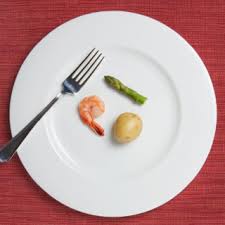 |
| 6. | 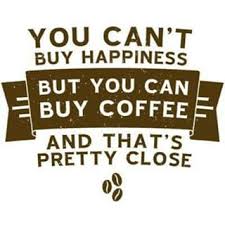 |
Coffee is unhealthy. You coffee addicts are going to be so happy. Coffee is loaded with antioxidants, as well as other compounds that actually may make you live longer. So raise your cup to healthy living, and drink coffee!! Stay away from the cream, though. |
| 7. | Eating Low Fat or Fat Free foods is healthier and better for weight loss. Unfortunately, if manufacturers remove fat, which, let’s face it, is where the flavor is, they have to add in other unhealthy things like thickeners and flavors, and chemicals. And that adds just as many calories. A study in Canada showed, “claims such as “100 per cent fat free,” “zero grams of fat,” “low in fat,” “lean” or “extra lean,” contain “minimal to nil” fewer calories…Numerous studies have shown that what matters in weight loss is the total number of calories consumed per day, and not the specific food or “macronutrient” such as fats, protein or carbs”, said Dr. David Lau, a professor of medicine at the University of Calgary. |  True Low fat! >> True Low fat! >> |
| 8. |  |
Low carb diets are bad for you. There are all kinds of websites out there touting one diet over another. The truth is that either low-fat or low-carb diets will work if you stick to them, and neither of them has long-term health effects. Use the one that works for you, sick to it, and learn lessons from it on how to eat in the future to maintain your fantastic shape. And don’t forget to exercise! |
| 9. | Low cholesterol foods are healthier. Our bodies regulate cholesterol. If we eat more, the body produces less. If we eat less, the body produces more. Even the US government agrees! | |
| 10. | 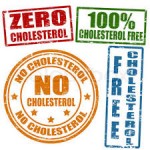 |
We should detox a couple of times a year. No, please don’t. These diets claim to clean toxins out of your liver and colon, clear your skin and energize you. But the body detoxes itself. It is designed to do so. What people feel- more energy, etc., likely is from going from a bad diet to a more healthy one. Don’t believe? Listen to what US scientists say. |
| 11. | Everyone should eat less sodium. Scientific American said in its 2011 article, “It’s Time to End the War on Salt!“. And in 2013, a study showed that Low-sodium diets may not be as beneficial as previously thought. And the America Journal of Hypertension said in a 2014 study that “Systematic Review of Health Outcomes in Relation to Salt Intake Highlights the Widening Divide Between Guidelines and the Evidence”. Which in non-science-speak means that guidelines on salt might be out of date, and that not everyone needs to lower their salt intake. | 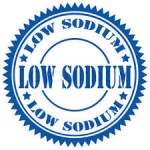 |
| 12. | 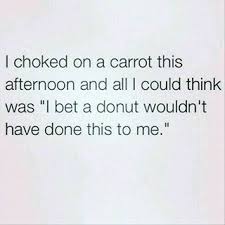 |
Bread and other carbs have to be avoided. Healthy carbs are an essential part of a healthy diet. You should definitely eat carbs, and you should also eat them in healthy quantities. The problem is highly-refined carbohydrates, those you usually find at the open-24-hours store. Twinkies, poptarts, sugary cereals, all these are bad carbs. But the right kind of carbohydrates can boost your health! |
| 13. | Raw veggies are better than cooked. Not true, according to various scientific studies. In fact, cooked foods often supply more of what you need in terms of nutritional goodness. For instance, boiling and steaming increase antioxidants. Cooking carrots increases their beta-carotene, which gets converted to Vitamin A in your body. So chow down on raw and cooked vegetables, and enjoy! |  |
| 14. | 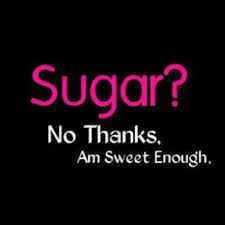 |
Sugar causes diabetes. While being overweight can contribute to your getting type 2 diabetes, and eating too many sugary foods can lead to weight gain, the American Diabetes Association assures us that eating sugar itself can’t cause diabetes. They highly recommend limiting your intake of sugary beverages like soda, fruit drinks and energy drinks. They say that, “Research has shown that drinking sugary drinks is linked to type 2 diabetes”. |
| 15. | Cancer cells feed on sugar. This is a myth, says the Cancer Society. But it may indirectly cause cancer by contributing to obesity. By the way, they also say that non-nutritive sweeteners also do not cause cancer. Be smart, eat limited amounts of both. | 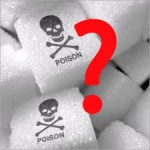 |
| 16. | 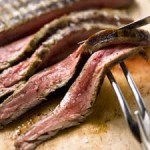 |
Avoid red meat at all costs. Don’t! Meat is delicious, full of nutrition and our bodies are made to eat it. We’re carnivores, and avoiding meat makes no sense unless you have to or are avoiding it for personal reasons. Authority Nutrition says, “There are no proven health benefits to avoiding meat.” |
| 17. | Calories are calories. We’ve all thought for a long time that calories in-calories out=calorie deficit/addition. In other words, simplistically, if I need 2000 calories a day to function, and I cut that back to 1500 calories a day, I’ll lose weight. And I will. But it’s not as simple as that. The foods we eat can have a huge impact on the biological processes that govern when, what and how much we eat. Read more here. | 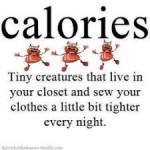 |
| 18. | 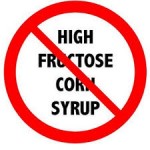 |
High fructose corn syrup will kill you dead. High Frucose Corn Syrup has been in the news and on commercials since 2004, when Dr. Barry Popkin associated it with the obesity epidemic. Singling out HFCS turned out to be unjustified, Popkin now admits. “Dozens of human studies on HFCS and energy intake and weight change show that our hypothesis was wrong.” He does suggest, however, that it is because of ALL the sugars now prevalent in our diet. He says that calorie-free sweeteners are just as bad, and that the sweet drinks we all imbibe are the worst things of all. Little to no sugar or fake sugar is the aim. But so hard to turn away from the sweetness. |
| 19. | The Quinoa craze is hurting the Peruvians and Bolivians. The South Americans who grow quinoa have never been happier. They are making money, and changing their lives. What may hurt them is if the crop goes worldwide, and there are people working on their side. |  |
| 20. | 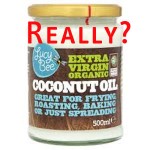 |
Coconut Oil is the best thing ever. Coconut oil is still a fat, and it has all the benefits and hazards of fats. It’s high in calories, and numerous reports show that it also raises LDL (bad) cholesterol just like other saturated fats, such as butter. |

